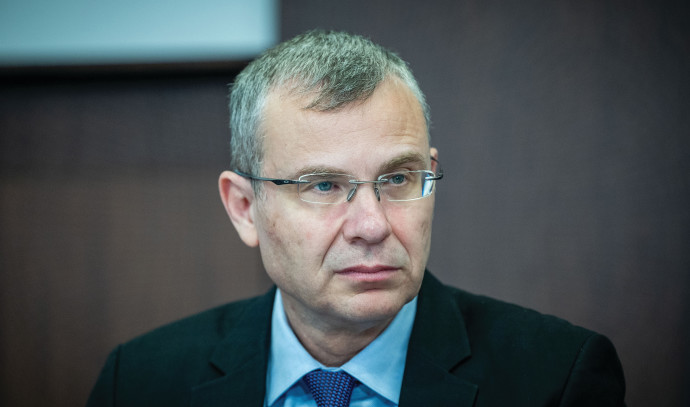Anyone who has three-putted before contemplating throwing their clubs away entirely knows that golf is a frustrating game. Frustrating, but fair. So fair, in fact, that the game “handicaps” amateurs to ensure a more level playing field across skill levels.
But the Ladies Professional Golf Association rules essentially allow for the equivalent of faking your handicap — the rules allow men to compete as women. And we’re not okay with that.
Back in October, some 194 players competed in the LPGA’s Qualifying Series. Qualifiers from this competition move on to the final stage of the qualifying process this month in hopes of earning an LPGA card. Regardless of how you finish, a player is guaranteed a chance to play in the following year’s Epson Tour — the tour below (and the main feeder to) the LPGA Tour.
Among those competing for a spot on the LPGA Tour and who competed during the first two stages of the LPGA’s Qualifying School (Q-School) is Hailey Davidson, a trans-identifying male golfer who advanced through the first stage of Q-School in August after finishing in a tie for 42nd.
The LPGA and the United States Golf Association (USGA) have both adopted policies that deem male competitors eligible to compete against women if they have undergone at least one year of hormone therapy and a gonadectomy — a surgical procedure to remove the male testes. Davidson, who reportedly had this surgery in 2021, meets these specifications and has qualified for the 2025 Epson Tour.
Every event Davidson competes in next year results in a female golfer who does not get the opportunity to play.
As female golfers, we’ve had to confront stereotypes and stigmas about female golf itself. We’ve struggled with less funding and fewer sponsorships. We’ve had to work harder to earn a living and achieve our dream of a life dedicated to this beloved sport.
Simply put, allowing a man — even one who’s undergone surgery and hormone therapies — to compete against women is not fair. In sports, fairness is the entire basis of the exercise. Women’s bodies are unique; it’s why women’s golf tours exist in the first place. Women, in a women’s tour, should not have to face male golfers.
That’s not to say that trans-identifying athletes should not play at all. There is a solution. The UN body on violence against women called for men’s sports tours to be accommodating to various gender identities because of the safety and fairness issue for women. In golf, most of the “men’s” leagues are actually open divisions where anyone can play. In fact, names like Michelle Wie, Annika Sörenstam, Lexi Thompson, and Brittany Lincicome have all entered PGA Tour events. Countless girls have competed on “boys’” high school teams when their school didn’t have enough interest to form a girls’ team.
The open division in sport already exists, but the need for women-only leagues has been universally recognized for the advancement and safety of female athletes.
We are among the 275 female players voicing their concerns over the rules admitting men to qualify, compete, and win in women’s golf by sending a letter to the LPGA, USGA, and the International Golf Federation (IGF). So far, our demand for change has not been granted, and the LPGA is allowing Davidson to compete on the 2025 LPGA and Epson Tours.
Today, there is just one known man trying to take a spot in the LPGA. But next year? And in a few years, one can imagine a scenario where women are a minority in the LPGA. Sound far-fetched? We have already witnessed a final competition in “women’s” sport — a British pool championship — where two men competed for the top “female” spot.
It would be laughable if it wasn’t so serious. The future of our sport hangs in the balance. The LPGA has the opportunity to show that common sense and women’s rights matter. They must repeal all policies that allow male golfers to participate in women’s golf events. They must establish and enforce the right of female professional golfers to participate in women’s golf based on sex eligibility that is limited to members of the female sex.
Competing at the highest level of golf has been our greatest honor. It has been the result of our determination, years of hard work, and world-class skill. We deserve to strive for these rewards with a policy that recognizes fair and equitable competition for women.
Lauren Miller, Hannah Arnold, Dana Fall, and Amy Olson are professional golfers and ambassadors for Independent Women’s Forum (iwf.org).

 By New York Post (Opinion) | Created at 2024-12-01 17:04:20 | Updated at 2024-12-04 08:04:09
2 days ago
By New York Post (Opinion) | Created at 2024-12-01 17:04:20 | Updated at 2024-12-04 08:04:09
2 days ago








